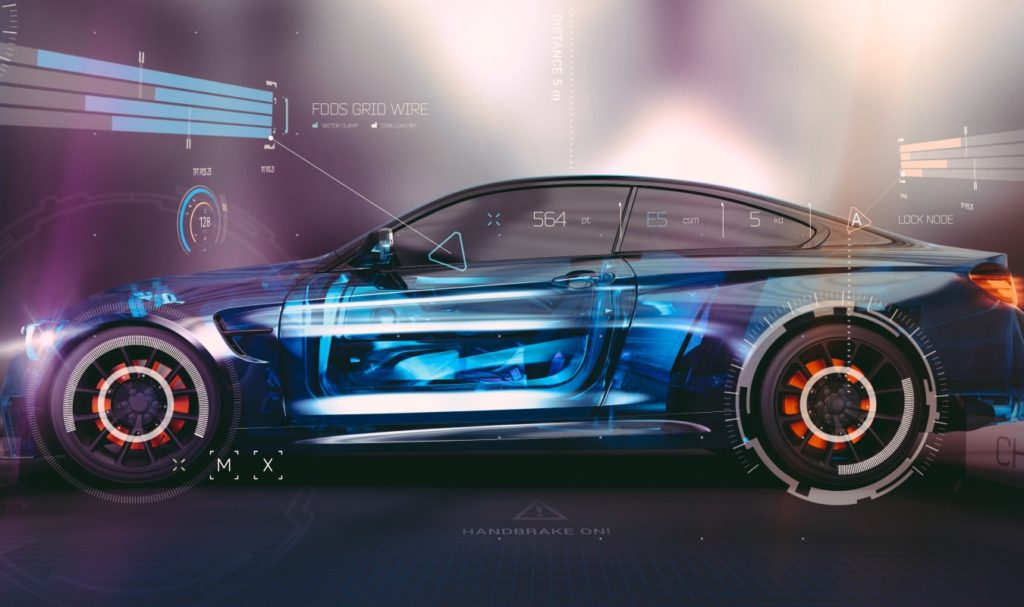Insights
For many companies across the globe, the COVID-19 pandemic has triggered an irreversible digital transformation process, making cloud computing an essential tool for running their operations. It’s quite easy to see why, as the cloud has brought astounding advantages to organizations in a vast array of industries, ranging from banking and retail to healthcare, life sciences, and automotive.
Experts are already well aware of the cloud benefits for the automotive industry, which include better scalability, improved cost efficiency, increased reliability, access to innovative technology, and faster time to market. In 2021, these benefits are needed more than ever by the key players in the automotive industry, especially by OEMs (Original Equipment Manufacturers).
With fast-evolving consumer behavior driven by the changes in the automotive market, coupled with the advances in autonomous, connected, shared and electric business models and tech, the traditional static chain model in the automotive industry continues to be disrupted, slowly morphing into a dynamic one.
Due to the COVID-19 pandemic, these changes were amplified exponentially, leaving OEMs questioning their procedures. The solution to these challenges comes in the form of the cloud, which tackles the four key areas of improvement:
1. Cost containment and transformation
2. Accelerating the process of manufacturing and engineering
3. Using data analytics and core IT
4. Developing new opportunities in the connected cars ecosystem
Where does the Cloud fit in
The digital revolution contributed to the growth and expansion of the cloud trend, increasing the effectiveness of early adopters. This is evident in all niches, from smart devices that grew exponentially to manufacturing units that managed to simplify their processes. The automotive industry is known as an early adopter, which means OEMs and vehicle manufacturers should concentrate their efforts on implementing a cloud-ready architecture.
Companies that are adopting cloud can leverage its power and benefits, being able to use their favorite transformative cloud solutions to enhance each and every stage of the value chain in the automotive industry.
Cloud fits into all major areas of the automotive process, including the core IT transformation, customer experience, software-defined cars, and mobility services & connectivity.

The benefits of adopting Cloud in the Automotive Industry
1. Diminish the complex architecture
There is no doubt that the automotive sector uses high-level operations which are extremely complex and very hard to implement. The auto industry features a unique combination of analytics, high-level engineering tasks, and an extended dealer network, requiring huge scalability and strong business support.
Because automotive facilities and operations require robust, agile computing power, the level of complexity in this industry is quite high. The cloud comes as a perfect alternative to the standard systems, enabling automotive facilities to gain unrestricted access to powerful servers via third-party vendors.
In the cloud, automotive players can tap into more storage space and computing capabilities. Additionally, a cloud system transforms the management and implementation processes, allowing OEMs to overcome any type of complexity issues.
2. Boost collaboration between parties
In the automotive sector’s supply chain, collaboration is one of the most crucial elements for true success. In addition to having to communicate internally, OEMs need to consistently work with outside collaborators, such as manufacturers, distributors, and other third-party entities.
Since each one of these parties uses their own B2B communication methods, coordinating a joint effort of connection could seem like a daunting task. Fortunately, cloud computing can solve this, by creating a single avenue that can enable all of these entities to collaborate with each other using cloud-based collaborative tools.
3. Greatly improve security
With the proliferation of infotainment systems, the number of cyber threats in the automotive industry is on the rise. A good solution to offer increased protection against threats and enhance security is for OEMs to migrate to the cloud. As a rule of thumb, cloud services include professional staff who ensure the security of the components, day and night.
Cloud security experts work with cloud services to offer advanced protection against cyber threats. Conversely, OEMs that keep their data on private servers or on physical locations might neglect this crucial aspect of hiring security experts.
Another aspect to mention here is that the cloud offers constant data backup, enabling automotive entities’ owners to gain peace of mind that their data is safe in case of hacks or accidental disasters.

4. Promote sustainability
The environmental crisis has triggered a strong response from the automotive industry, which has only become more conclusive in the last few years. The cloud can enable more mainstream adoption of our sustainable future, enabling OEMs to minimize their carbon footprint and diminish data usage needs.
Additionally, cloud computing can enable automakers to leverage the true power of green technology, which would allow them to develop environmentally-friendly vehicles for the end-users.
5. Enhance vehicle safety
Cloud computing has enabled OEMs to design smart vehicles that leverage the advancements in technology and IoT (Internet of Things) in order to engage with the surrounding environment. These are “connected vehicles” that embed a number of driver-assist features which increase the safety of the drivers and passengers.
6. Allow OEMs to offer better services
Last but not least, the cloud allows automakers to offer their customers enhanced aftermarket services, such as smartphone optimization, dynamic GPS services, or connectivity features. Thanks to cloud computing, vehicles today are becoming more connected and smarter by the day, enabling drivers to enjoy a superior driving experience and gain more security when they are behind the wheel.
The Bottom Line
When it comes to the automotive industry, the future is already here. Any OEM and automaker that is serious about their growth should migrate to the cloud in order to reap the benefits of cloud computing in 2021 and beyond.


